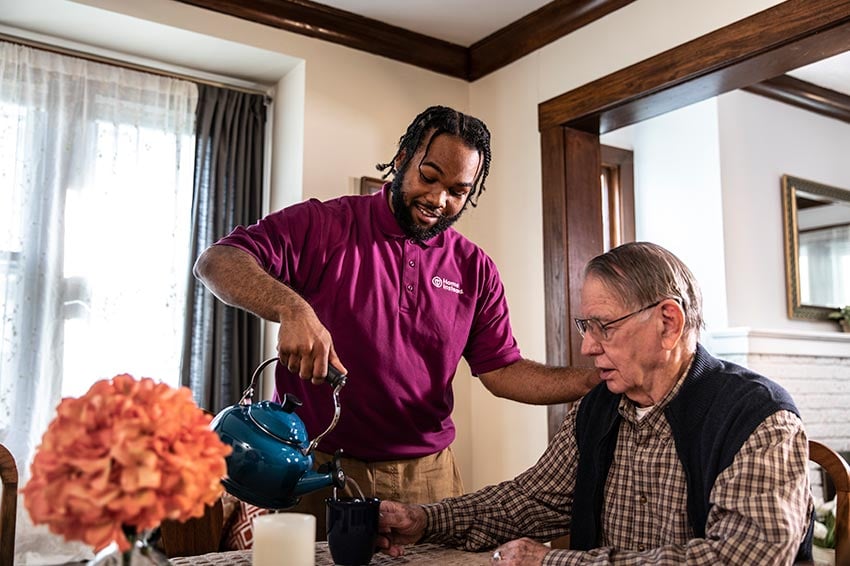All Categories
Featured
Table of Contents
- – Senior Living Consultants Fallbrook, CA
- – Heaven Heights
- – Senior Living Assistance Fallbrook, CA
- – Alzheimer Caregiver Fallbrook, CA
- – Schizophrenia Assisted Living Fallbrook, CA
- – Alzheimers Caregivers Fallbrook, CA
- – In Home Alzheimer's Care Fallbrook, CA
- – Senior Living Consultants Fallbrook, CA
- – Alzheimer Home Care Fallbrook, CA
- – Heaven Heights
Senior Living Consultants Fallbrook, CA
You may have the ability to get help from household members, neighbours, volunteers or agencies. Some help may be readily available through the Home Care program in your area at no or reduced cost. Get in touch with your local Alzheimer Culture for more details on services available in your location. Solutions that can assist consist of:: They offer individual treatment at home, assisting with eating, clothing and bathing in addition to light household jobs.
: Nursing solutions give qualified specialists in the home.: These programs use home-delivered dishes to help give healthy lunches and dinners.: These provide a friendly visitor (paid or volunteer) to hang around with the individual doing a task such as walking.: These provide social interactions for the individual in addition to break for the caretaker.

Providers for the elderly and their caretakers differ in various provinces, regions and regions. You can learn what solutions are readily available in your neighborhood from a number of sources: Your local Alzheimer Culture Your family practitioner, wellness clinic or social employee The general public wellness division in your location Community companies Your friends, family, neighbours, particularly if they have actually been caregivers.
Senior Living Assistance Fallbrook, CA
A loved one with dementia will require assistance in the home as the disease worsens. You can assist by attempting to comprehend just how the person with dementia views their globe. Give the person an opportunity to discuss any type of obstacles and participate in their own everyday treatment. Begin by talking with your liked one's healthcare service provider.
Household picture cds can be beneficial. Attempt to maintain a normal sleep and consuming timetable. Keep lights on during the night. Usage tips, notes, lists of routine jobs, or directions for everyday tasks. Stick to a simple activity schedule. Discuss present events. Taking regular walks with a caregiver can help boost interaction skills and avoid wandering.
Alzheimer Caregiver Fallbrook, CA
People with dementia need to have their eyes and ears checked. If issues are located, hearing help, glasses, or cataract surgical treatment might be needed. Individuals with dementia should also have routine driving tests. At some factor, it will not be safe for them to remain to drive. This might not be an easy choice.
State regulations differ on the capacity of an individual with mental deterioration to proceed to drive. Monitored meals can assist with feeding. People with mental deterioration often fail to remember to consume, and can become dehydrated because of this. Speak to the provider regarding the requirement for additional calories because of boosted exercise from restlessness and wandering.
Schizophrenia Assisted Living Fallbrook, CA
If they stray, their caregiver can get in touch with the police and the national Safe Return workplace, where information concerning them is saved and shared nationwide. At some point, people with dementia may require 24-hour tracking and help to offer a secure setting, control aggressive or upset behavior, and meet their requirements. LONG-LASTING CAREA individual with dementia might require tracking and aid in your home or in an organization.
They include: Grownup protective servicesCommunity resourcesLocal or state federal government departments of agingVisiting registered nurses or aidesVolunteer solutions In some areas, dementia-related support teams may be offered. Household counseling can assist member of the family handle home care. Advancement regulations, power of attorney, and other lawful activities may make it less complicated to pick care for the person with dementia.

There are support teams that can offer information and resources for people with Alzheimer condition and their caregivers.
Alzheimers Caregivers Fallbrook, CA
These concerns and sensations are regular.
The function of a treatment companion is not limited to spouses, companions or close member of the family. Treatment companions may consist of "family members of selection" such as friends, next-door neighbors or long-distance relatives. If you are offering support as a secondary or remote treatment companion, it might be tough to identify the exact level helpful needed without straight observation.
In Home Alzheimer's Care Fallbrook, CA
One of the best difficulties care companions face is not understanding just how much assistance to offer or when to provide it due to the fact that the individual with early-stage dementia is largely independent with clothing, showering, strolling and may still drive, volunteer or work. The most uphill struggles may entail taking care of a day-to-day timetable or house spending plan.
Every partnership is various, however finding equilibrium between interdependence and independence might raise confidence for both of you. Download and install, print and maintain the list convenient to stop hazardous circumstances and help maximize the individual coping with dementia's freedom for as long as possible. To aid you figure out when and how to give the most ideal assistance to a person living in the onset of mental deterioration consider these tips used by other care partners: Exists a prompt security threat for the individual with mental deterioration to perform this job alone? If there is no instant risk of injury or injury, offer inspiration and remain to provide guidance as needed.
If you understand that grocery purchasing will certainly be frustrating for the individual with mental deterioration, ask for their participation to lay out an once a week food selection and organize a grocery listing. Presume that the individual with mental deterioration can completing the task. If you notice irritation, try to recognize the root cause of the frustration prior to stepping in.
Senior Living Consultants Fallbrook, CA
Ask the individual with mental deterioration what they require or the aggravations they might be experiencing. Talk regarding it, after that make a plan.: Find tasks to do with each other and maintain the conversation setting about assumptions for exactly how you will certainly offer assistance. Sign in frequently by asking the person with mental deterioration if you are supplying a level helpful that fits or ample.
While every individual experiences the onset of mental deterioration in different ways, it prevails that an individual in the early-stage might require signs and tips to aid with memory. As a care companion, it may be necessary for you to take the effort to identify just how you may have the ability to aid.

Consider means to collaborate as a team. For instance, if they are still comfy balancing a checkbook, you might supply to supply a final evaluation. Giving assistance to a person coping with Alzheimer's condition or an associated mental deterioration is a recurring and sometimes psychological procedure. As treatment partner, you might be feeling bewildered by feelings that vary from concern to hope.
Alzheimer Home Care Fallbrook, CA
Discovering to recognize your feelings might help you progress and help the person with mental deterioration live the most effective life feasible. I squandered a lot of beneficial time denying that this might be possible, when I could have been getting assistance to help me manage the diagnosis. Sarah H., Care Companion The medical diagnosis might seem amazing or difficult to approve.
Heaven Heights
Address: 2870 Whiptail Loop Ste 218 Carlsbad, CA 92010-6767Phone: (760) 642-2096
Email: innovativeseniorcare@heavenheights.com
Heaven Heights
It also can delay his or her capacity to live a top quality life. If you are experiencing rejection about the medical diagnosis, your capacity to help the person with mental deterioration will be interfered with until you can concern terms with the diagnosis on your own. Anxieties about the progression of the illness and the obstacles in providing future treatment can be frustrating and can avoid you from focusing on today.
Alzheimer's Caregivers Fallbrook, CACare For Alzheimer's Fallbrook, CA
Home Care For Alzheimers Fallbrook, CA
Care For Dementia Patients Fallbrook, CA
Alzheimer Care Near Me Fallbrook, CA
Alzheimers Caregivers Fallbrook, CA
Schizophrenia Assisted Living Fallbrook, CA
Care For Alzheimer's Fallbrook, CA
Alzheimers Home Care Fallbrook, CA
Alzheimers Caregiver Fallbrook, CA
Home Care For Alzheimer's Fallbrook, CA
Home Care For Alzheimers Fallbrook, CA
Senior Living Consultants Fallbrook, CA
Alzheimer's Care At Home Fallbrook, CA
Alzheimer Home Care Fallbrook, CA
Assisted Living Services Fallbrook, CA
Alzheimer's Home Care Fallbrook, CA
Senior Assisted Living Fallbrook, CA
Care For Alzheimer's Fallbrook, CA
Care For Dementia Patients Fallbrook, CA
Schizophrenia Assisted Living Fallbrook, CA
Senior Living Assistance Fallbrook, CA
Alzheimers Care Near Me Fallbrook, CA
Care For Dementia At Home Fallbrook, CA
Care For Alzheimer's Fallbrook, CA
Senior Living Assistance Fallbrook, CA
Alzheimer Caregiver Fallbrook, CA
Care For Alzheimer's Fallbrook, CA
Care For Dementia Patients Fallbrook, CA
Senior Assisted Living Fallbrook, CA
Alzheimer Care Near Me Fallbrook, CA
Home Care For Alzheimer's Fallbrook, CA
Services For Seniors Fallbrook, CA
Alzheimer Care Near Me Fallbrook, CA
Alzheimers Caregivers Fallbrook, CA
Care For Dementia At Home Fallbrook, CA
Alzheimers Caregiving Fallbrook, CA
Alzheimer Care Fallbrook, CA
Senior Living Assistance Fallbrook, CA
Senior Living Assistance Fallbrook, CA
Senior Assisted Living Fallbrook, CA
In Home Care For Alzheimer's Fallbrook, CA
Alzheimers Home Care Fallbrook, CA
In Home Alzheimer's Care Fallbrook, CA
Alzheimer's Caregivers Fallbrook, CA
In Home Care For Alzheimer's Fallbrook, CA
Alzheimer's Care At Home Fallbrook, CA
Alzheimers Care Near Me Fallbrook, CA
Alzheimers Caregiving Fallbrook, CA
Alzheimer Care Near Me Fallbrook, CA
Senior Living Assistance Fallbrook, CA
Care For Dementia Patients Fallbrook, CA
Alzheimer Caregiver Fallbrook, CA
Local Seo Companies Fallbrook, CA
Finding A Good Local Seo Pricing Fallbrook, CA
Heaven Heights
Table of Contents
- – Senior Living Consultants Fallbrook, CA
- – Heaven Heights
- – Senior Living Assistance Fallbrook, CA
- – Alzheimer Caregiver Fallbrook, CA
- – Schizophrenia Assisted Living Fallbrook, CA
- – Alzheimers Caregivers Fallbrook, CA
- – In Home Alzheimer's Care Fallbrook, CA
- – Senior Living Consultants Fallbrook, CA
- – Alzheimer Home Care Fallbrook, CA
- – Heaven Heights
Latest Posts
San Ysidro Alzheimer's Caregivers
In Home Alzheimer's Care Murrieta
San Marcos Care For Alzheimer's
More
Latest Posts
San Ysidro Alzheimer's Caregivers
In Home Alzheimer's Care Murrieta
San Marcos Care For Alzheimer's